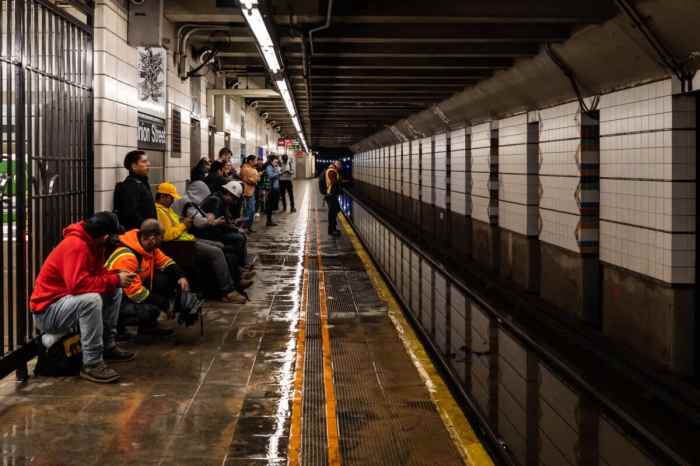This month saw some special mileage chalked up, about which there should be no scrimping on the hosannas. Jan. 8 marked the 100th anniversary of the African National Congress (ANC) in South Africa. And a more determined commitment in the struggle for equality and dignity for people of color would be difficult to come by. It seems altogether fitting, one would dare say perhaps providentially so, that Nelson Mandela was able to witness the march past this significant mile-post.
It was, I recall, not too long after Mandela had made that incredulous transition from political nemesis jailed for life to South Africa’s first Black President, that I told the late Kelvin Pope, calypsonian extraordinaire the Mighty Duke, he ought to continue performing “How Many More Must Die,” his searing indictment of apartheid rule. Not because they’ve been forced to end this brutishness, I felt, should recall of it likewise come to a halt. So with the ANC and what they would have had to endure, to have made a determination in the early years of the 20th century, to take a stand for freedom. In the South Africa of 1912, membership in any organization bent on anti-establishment agitation would not have been for the faint of heart.
Doggedly, the ANC persisted, the search for like-minded souls willing to aid the cause very much a challenge in those early days, given the tenor of the times, as far as what passed for conventional wisdom for the universal status of Blacks. As happened elsewhere, the ANC would find common ground with the Communist Party, previously all-white though it had been, as it settled in for surely what they all knew would be a protracted struggle.
Serendipity would bring Mandela and Oliver Tambo, almost the same age, and Walter Sisulu a few years their senior, together in the ANC’s youth league in the early 1940s. The spirit of activism in which they were all immersed had propitiously taken hold a few years before the South African government, in 1948, institutionalized apartheid in the country — codifying strict separation of the races in all walks of life, embarking on a shamelessly inhumane resettlement program for Blacks, and with all the requisite ferocity that would enforce the system in perpetuity. It was daring enough that Mandela and the others would think to mount even peaceful protests in response to the unseemly horror visited upon Africans on their native turf by interlopers. More striking still was the ANC’s resort to violent sabotage maneuvers, Mandela assuming a central planning role, when they found the Gandhian methods totally ineffective.
Mandela would several times during those years of struggle, distinguish himself as the quintessential symbol of fearlessness in the face of a belligerent oppressor. The infamous P.W. Botha, before he was forced to yield the South African presidency to F.W. De Klerk, had tried to elicit from the imprisoned Mandela, as a condition of his release, renouncing of further violence in the Africans’ fight for an end to black disenfranchisement. Botha’s offer was spurned. In that vein, some oft-quoted words in a statement Mandela made when he was on trial in 1964 for plotting against the state, and for which he was given a life sentence, merit reprise yet again: “During my lifetime I have dedicated myself to the struggle of the African people. I have fought against white domination and I have fought against black domination. I have cherished the ideal of a democratic and free society in which all persons live together in harmony and with equal opportunities. It is an ideal which I hope to live for and to achieve. But if needs be, it is an ideal for which I am prepared to die.”
Mandela, born in 1918, arrived six years after the ANC came into being. Sisulu was born in 1912; Tambo in 1917. Of this iconic threesome, only Mandela has survived to their beloved ANC’s centenary observance. But of greater moment, perhaps, is the importance (certainly to Mandela) of preserving an ANC legacy steeped in core principles that framed the struggle. There are unsettling signs that Mandela and company would be less than thrilled about the face of today’s ANC. It can’t be exactly comforting to hear someone of Archbishop Desmond Tutu’s moral authority refer to the current ANC administration as “worse than the apartheid government,” as Tutu reportedly declared in a speech referenced in a recent Time magazine story. Or for Jacob Zuma, South Africa’s president, to himself cite corruption as one of the government’s major problems.
Thabo Mbeki was Mandela’s choice as his successor when he left the presidency after his historic term from 1994 to ‘99. Maybe there was some writing on the wall about changing values within the party when Zuma succeeded the more studious and technocratic Mbeki, the knock on Mbeki supposedly being he wasn’t the “people” person Zuma was. Maybe it should have mattered more that Zuma wasn’t exactly baggage-free, having been on a rape charge (on which he won acquittal). And inferences about his alleged closeness to an unsavory arms deal never seem to go away.
There’s need, apparently for some urgent ANC image repair. Mandela, in the twilight of his years can’t do it. But current players need only to re-trace the path of Mandela, Tambo and Sisulu to right the ship, if it is indeed listing badly.






















